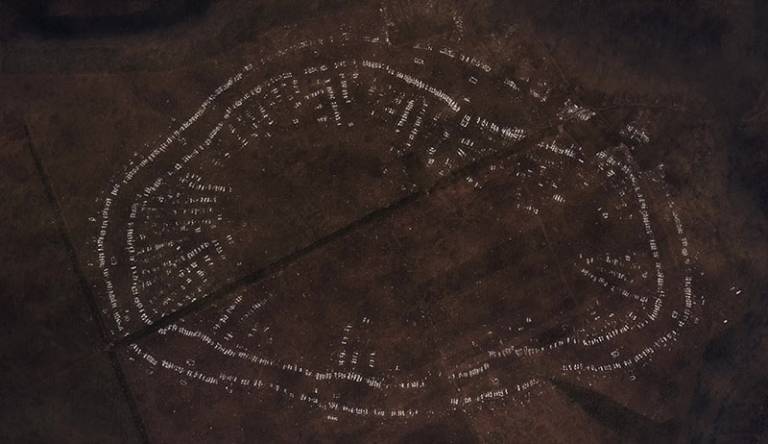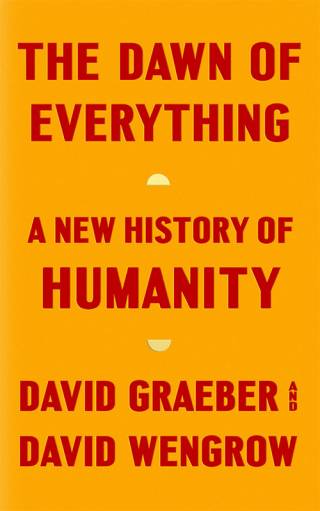Venice Biennale Exhibition on concept of cities and urban origins
24 May 2023
David Wengrow (UCL Institute of Archaeology) has collaborated on an exhibition at the Venice Architecture Biennale 2023, exploring the concept of cities and urbanism through the lens of a 6,000-year-old Ukrainian archaeological site.

Buried deep below the rich black soils of central Ukraine, archaeologists charted human settlements as large and ancient as the first Mesopotamian cities, yet conceived on radically different principles. One such place is Nebelivka. Its 6,000-year-old remains offer a lens through which to interrogate core assumptions about urban space, power, and ecology.
The Nebelivka Hypothesis, a multi-media video exhibition, will premiere at the 18th International Architecture Exhibition of the Biennale di Venezia, The Laboratory of the Future. This may be the first time that archaeology has been represented in this major forum.
This project is structured as an unprecedented collaboration between Forensic Architecture – a group of architectural researchers otherwise dedicated to the investigation of human rights violations and war crimes – and David Wengrow, Professor of Compative Archaeology at the UCL Institute of Archaeology, and co-author of the recent best-selling book with David Graeber, The Dawn of Everything: A New History of Humanity (2021).
The Dawn of Everything challenges the idea that the first cities were incubators for a new form of political organisation - the State - with its faceless bureaucracy, ruling elites, and techniques of surveillance and control. Instead, it charts the recovery of lost urban traditions from various parts of the world, which reveal a myriad of possible trajectories, including early experiments in social housing and egalitarian cities.
Combining archaeological science with the tools of Forensic Architecture, the multi-media video presents evidence that unsettles the position of the State as the inevitable way of life for human society. It charts the recovery of a lost tradition of urban life below the soils of the Ukrainian steppe.
According to David:
“The genesis of this project lies in a conversation with Eyal Weizman [Director, Forensic Archirecture], where he suggested to me that – despite their radically different scales of analysis – there was a kind of affinity between the methods David Graeber and I employed in The Dawn of Everything, and the procedures undertaken by Forensic Architecture. In seeking to challenge the authority of state narratives by extracting counter-archives of information from physical crime scenes, Weizman’s approach is aligned with our project of finding evidence in the archaeological record to confront established theories, which position the modern State as a telos of human social development."

The 18th International Architecture Exhibition of the Biennale di Venezia, The Laboratory of the Future, is curated by Lesley Lokko, a UCL alumna and Visiting Professor at The Bartlett School of Architecture.
Read more
Media links
Images
- Top: A rendered impression of the archaeological layer of Nebelivka, revealing its concentric spatial arrangement. (Forensic Architecture, 2023)
- Bottom: Sunflower field cultivated in today’s village of Nebelivka above the ruins of the ancient settlement. Locals regularly find pieces of Trypilian pottery in the ploughed soil. (Forensic Architecture, 2023)
 Close
Close


